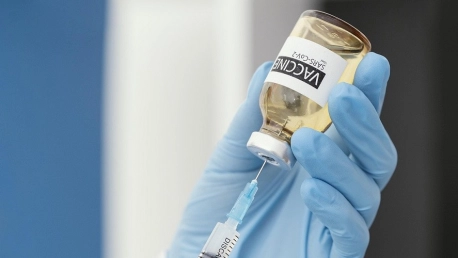According to a recent study, 1 in 3 Americans stated they will definitely or probably refuse the COVID-19 vaccine, but how will their decision impact the future of others? While scientists hope that the number of those who ultimately decide to get vaccinated will be enough to achieve herd immunity, some have already started to voice their concerns. Herd immunity may require 75-90 percent of Americans to be vaccinated, so it comes as no surprise that both policymakers and scientists seem to worry about the future. The spread of vaccine skepticism across the world may come at a greater cost than initially expected, prolonging not only the pandemic but also the current crisis.
Vaccine skepticism is by no means new, nor is it confined within US borders. In fact, the World Health Organization (WHO) has recently criticized the European Union (EU) for its “unacceptably slow” vaccine rollout, while the region is also regarded as “the world’s epicenter of vaccine skepticism“. When it comes to COVID-19 vaccines, the EU’s failure may be partially explained by the fact there is no united EU health structure to guide member states, although that doesn’t mean vaccine skepticism doesn’t play an important role in the process. In fact, vaccine skepticism might prove to be a game-changer across the world.
Divide and Conquer
Fighting the COVID-19 pandemic is no easy task, especially if the virus could receive reinforcements from the most unlikely sources. A divide-and-conquer strategy may seem improbable or even outrageous during a global pandemic, but Europe’s case proves just how real it can become. While EU’s quarrel with the UK moved from Brexit to the Oxford-AstraZeneca vaccine, vaccine skepticism has grown in southeastern Europe. Both EU member countries such as the Czech Republic, Romania, Bulgaria, and aspiring members, such as Serbia and Bosnia, are facing rising vaccine skepticism at home.
Serbia seemed to start off its vaccination program on the wrong foot, with just 200,000 people applying for vaccination while 1 million people applied for the pandemic support offered by the government. News from Serbia also showed important antagonism among pro-Russian and pro-Western citizens, with Serbians actually leaning toward the Russian vaccine when given the choice between Sputnik V and Pfizer-BioNTech. While Serbia’s struggles seem to be ideological in nature, growing violence between Ukraine and Russia is much more real.
However, there is something to be learned from both Serbia and Ukraine’s problems, especially given the latter’s record-high COVID-19 deaths. Vaccine skepticism seems to be linked to political and economical instabilities, in a vicious circle that makes it hard to determine the cause and the effect.
Why It Matters
While eastern European countries might seem prone to both vaccine skepticism and political instabilities, America is not without the first. Studies show that less than 70% of Americans intend to get or are already vaccinated, while more than 30% say they will probably or definitely ignore the prospect of getting the shots. Like their counterparts in Europe, Americans are also raising questions about the vaccine’s safety and efficacy. The primary reason for refusing vaccination, according to the studies, is the fact that COVID-19 vaccines were developed and tested faster than ever before.
However, when it comes to vaccine skepticism, there is another important similarity between Europe and the US: the fact that vaccine skepticism seems to be linked to both social differences and divides. US citizens without a college degree are more likely to decline the vaccine than those with higher education, 40% versus 17%. Republicans are more also more likely than Democrats to refuse the shot, and the discrepancies don’t seem to stop at the social-political level. They might actually grow bigger and bigger as time passes because the link between vaccine skepticism and instability seems to form a vicious circle within the US and across the globe.
While President Joe Biden remains optimistic and says 200 million vaccines will be administered within his first 100 days in office, it is journalists that are left voicing some important questions. Is vaccine skepticism both a cause and an effect of our social divides? Are we caught in a vicious circle by our differences? And, maybe even more important, will vaccine skepticism cause future economic and political unrest or will the fight against a global pandemic unite people everywhere? Maybe only time can truly tell.









